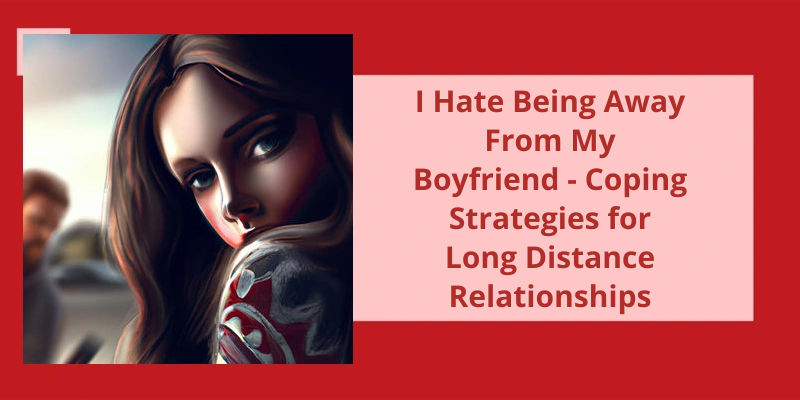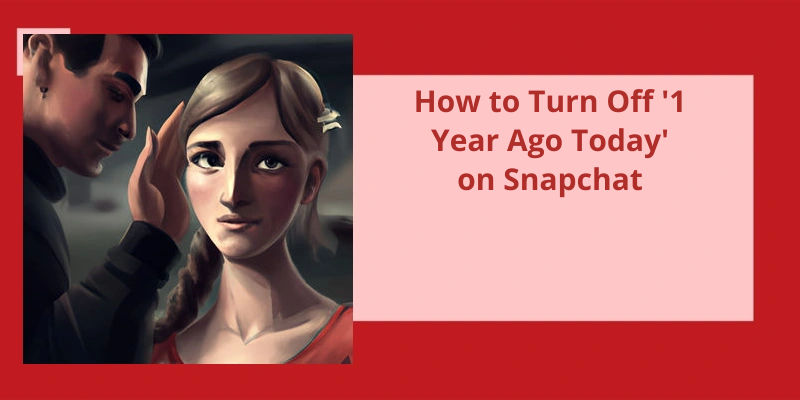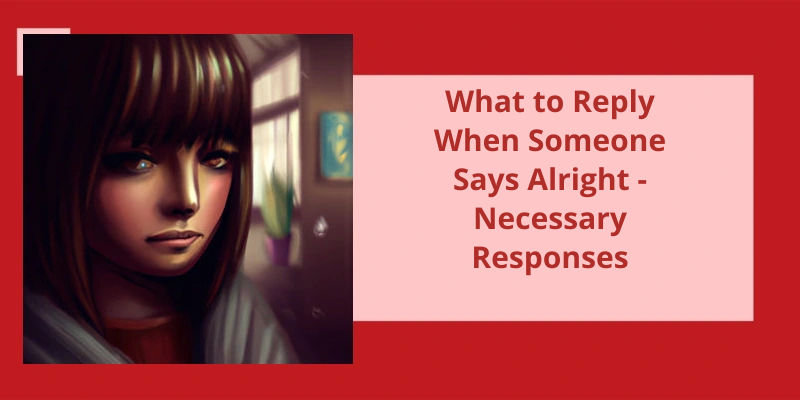As human beings, we all have different ways of communicating and interacting with each other. However, there are times when we find ourselves in situations where our actions unintentionally mislead others and we end up leading them on. It could be as simple as giving someone false hope or making promises that we know we can’t keep. Whatever the case may be, the guilt that comes with leading someone on can be overwhelming. It may leave us feeling remorseful and guilty for the hurt we’ve caused to the other party. In this article, we will explore the reasons why leading someone on should be avoided at all costs and what you can do to make amends and move on.
What to Do if You Unintentionally Lead Someone On?
Leading someone on unintentionally can happen to anyone, and it can create confusion and emotional turmoil for the other person. In situations like these, the best course of action is to be honest and careful with your communication. Letting the person know about your true intentions can alleviate any misunderstandings that may have arisen due to their perception of the situation.
To correct things when you unintentionally led someone on, start by being honest with the person. Let them know that you didn’t mean to lead them on and apologize for any confusion that may have arisen due to your actions. This openness and honesty can help the person feel respected and valued as a human being.
Once you’ve acknowledged your mistake, clarify your intentions moving forward. Be clear about what you can offer the person, whether it’s a friendship, a professional relationship, or nothing at all. Setting clear boundaries and expectations can help the person understand where they stand with you and prevent any misunderstandings in the future.
Giving the person space to process their emotions and thoughts is also important. While you can’t control their feelings, you can show empathy and understanding by respecting their boundaries and not pressuring them to engage further with you. This can help the person feel safer and more comfortable around you, even if the relationship is changing.
Being supportive of the person through this transition can also help. Offer to listen to them if they need to talk, and validate their feelings without making promises you can’t keep. Being a good listener can go a long way in helping the person come to terms with their emotions and feelings.
Finally, take the time to learn from your mistakes. Reflect on how you got into the situation and what you can do better in the future. This self-awareness can help you avoid unintentionally leading someone on in the future, and it can also help you grow as a person.
If you find yourself in this situation, the best course of action is to be honest, clarify your intentions, give the person space, be supportive, and learn from your mistakes. These actions can help you correct things and maintain respectful and positive relationships with others.
Ways to Prevent Unintentionally Leading Someone on in the Future
To avoid unintentionally leading someone on in the future, it’s important to be honest and upfront about your intentions. Be clear about what you’re looking for in a relationship and communicate it clearly. Pay attention to the signals you’re sending and avoid giving mixed messages. Be respectful of the other person’s feelings and avoid leading them on by setting clear boundaries.
What Does if I Led You on Mean?
Imagine being excited about someone who seems to reciprocate your feelings. They offer you compliments, spend time with you, and even make plans for the future with you. However, as time goes on, you start to realize that their words and actions don’t align. They cancel plans, stop responding to your messages, and seem to be pulling away. Youre left feeling confused and hurt, wondering what went wrong. In this scenario, it’s possible that the person led you on. They pretended to have feelings for you or interest in pursuing a relationship when they’d no intention of doing so.
Leading someone on can be a hurtful experience, as it creates false hope and expectations. This behavior can occur in romantic relationships, friendships, and even professional contexts. It’s important to recognize when someone is leading you on and to take steps to protect yourself from further disappointment. This might mean having a direct conversation with the person, setting boundaries, or even ending the relationship altogether.
There are many reasons why someone might lead another person on. Sometimes, it’s intentional and malicious – the person is using the other person for their own gain or amusement. In other cases, it might be a result of insecurity, confusion, or fear of confrontation. Regardless of the reason, leading someone on is never okay. If you suspect that youre being led on, it’s important to trust your instincts and to communicate your needs and boundaries clearly.
Unfortunately, theres no foolproof way to avoid being led on. However, there are certain red flags to watch out for. If someone is inconsistent in their words and actions, avoids making concrete plans or commitments, or seems to be hiding something, it might be a sign that theyre not being honest with you. It’s also important to pay attention to your own feelings and reactions – if something doesn’t feel right, it probably isnt.
Taking responsibility for leading someone on can be a difficult and uncomfortable conversation to have. However, it’s an important step in apologizing for hurting someone’s feelings. Here are some tips on how to effectively apologize for leading someone on without blaming them for their feelings, keeping it short, and taking full ownership of your actions.
How Do You Apologize to Someone You Lead On?
Apologizing for leading someone on can be a difficult and uncomfortable situation. It’s important to acknowledge the hurt that was caused and take ownership for your actions. A sincere apology can go a long way in repairing a damaged relationship and allowing both parties to move forward.
Avoid placing blame on the other person or making excuses for your behavior. Acknowledge that you were wrong and that your actions caused someone else pain.
It’s also important to be specific about what you’re apologizing for. Rather than making a vague apology, be clear about what you did wrong and how it impacted the other person. This can show that you’ve really thought about your actions and are committed to making things right.
Let them know that you understand how their hopes and expectations were impacted by your actions. It can also be helpful to reassure them that it was not their fault for feeling the way they did.
It may not be easy, but it can be a critical step in repairing a damaged relationship and moving forward in a positive way.
Now that we’ve established what it means to lead someone on, let’s delve into the significance of the phrase “I’m sorry for leading you on.” This statement is typically uttered when someone realizes that they’ve given false impressions or hope to another person regarding the potential of a romantic relationship. It’s a way to take responsibility for their actions and apologize for any hurt they may have caused. However, it can also be a difficult pill to swallow for the individual who was led on, as it means that their hopes and expectations weren’t reciprocated.
What Does I’m Sorry for Leading You on Mean?
When someone says “Im sorry for leading you on,” it means that they feel guilty for suggesting a romantic relationship or leading the other person to believe that there was a possibility of a romantic relationship when there was actually none. It’s a phrase that’s often used to apologize for unintentionally hurting another persons feelings or causing them emotional distress.
In many cases, the person who’s been led on may feel hurt, angry, or confused because they may have invested a lot of time, energy and emotions in the relationship, only to find out that it was never going to go any further. They may feel that they’ve wasted time and effort in a relationship that was not genuine, or that they were deceived by the other person.
It can be a way to show empathy and understanding for the other persons emotional state, and to let them know that the speaker didn’t intend to cause them harm or discomfort.
In some cases, the phrase may also be used as a way to end a relationship that’s been going on for too long without any real feelings involved. It can be a way to break off the relationship without necessarily ending it on bad terms, and to show that the speaker respects the other persons feelings and emotions.
It’s a way to apologize for causing harm, to show empathy and understanding, and to work towards resolving conflicts and repairing relationships that may have been damaged. When used sincerely, it’s a phrase that can help to heal emotional wounds and to strengthen interpersonal bonds.
Signs That Someone May Be Leading You On
- They never make concrete plans with you.
- They’re always unsure about their feelings towards you.
- They seem to only communicate with you when it’s convenient for them.
- They’ve a history of leading people on.
- They make promises they never intend to keep.
- They avoid introducing you to their friends or family.
- They only want to spend time with you when it benefits them.
- They give you mixed signals and leave you confused.
- They’re hesitant to discuss the future of your relationship.
Conclusion
In conclusion, leading someone on can be an emotionally damaging experience for both parties involved. It’s essential to consider the feelings and intentions of the other person before engaging in any kind of relationship or flirtatious behavior. While it may seem harmless at first, leading someone on without any true intentions of pursuing a committed relationship can lead to false hopes and disappointment. It takes courage and honesty to confront the situation and apologize for any hurt that may have been caused. Learning from our mistakes and taking responsibility for our actions is crucial in becoming a better and more empathetic individual.






